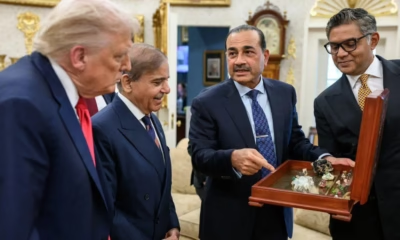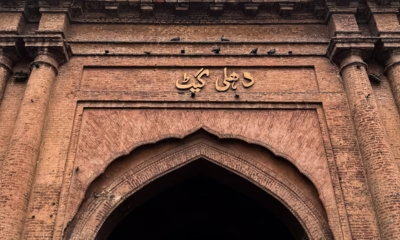History
Hazrat Umar ibn Khattab (R.A.) | Islamic History
Hazrat Umar ibn al-Khattab was the second Caliph of the Muslim world and one of the ten blessed companions of Prophet Muhammad pbuh.
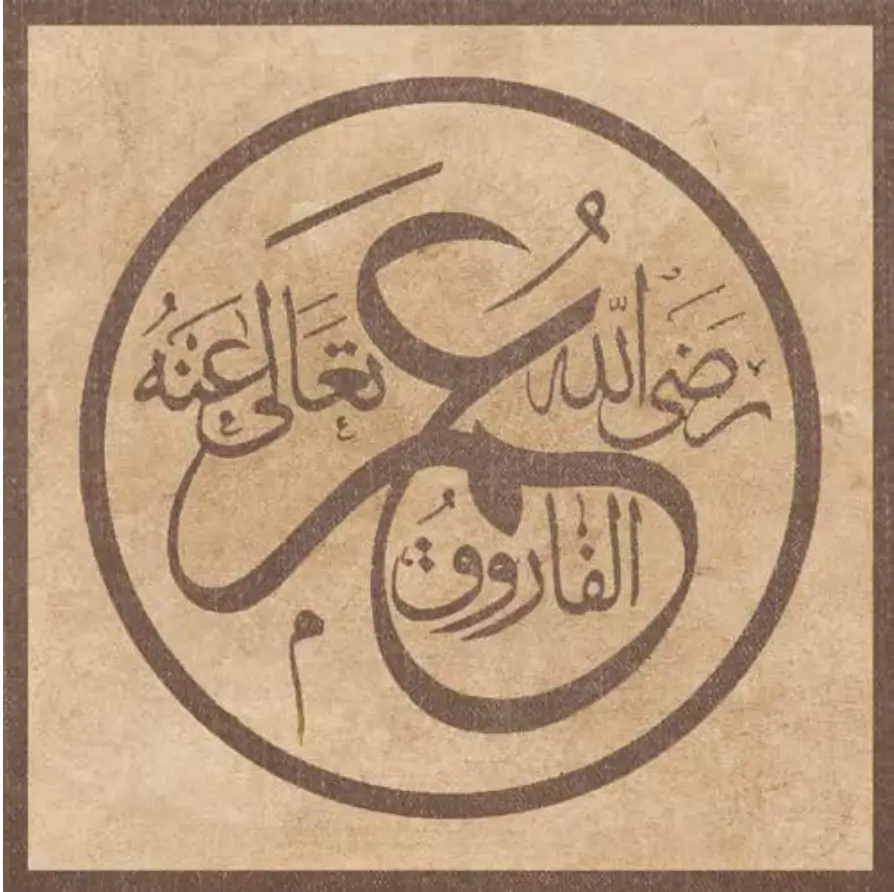
“O God, strengthen Islam with Abu l-Hakam the son of Hisham or with Umar, the son of Khattab!”
This prayer was recited by Prophet Muhammad (peace be upon him) for a 26-year-old at a time when Islam was in its early days, the Muslims of Makkah were weak, and were forced to conceal their religion for fear of persecution by the Quraysh of Makkah. Such was the stature of the man.
Early life
Umar ibn al-Khattab (R.A.) was the son of Khattab ibn Nufayl, born in 584 CE. He was the nephew of a famous Quraysh leader, Abu Jahl, and one of the most unrestrained in carrying out the instructions of his uncle, who had directed the Quraysh to intensify the repression and persecution of the believers. Umar Ibn Khattab (R.A.) was a headstrong young man, not easily deterred, and of great resolution. However, unlike his uncle, he was pious, which was his primary reason for opposing the new religion. Umar had been raised to venerate the Ka’bah and to respect everything associated with it, including the gods. For him, this was a sacred unity not to be questioned or tampered with. However, with the rise of Islam in Mecca, the old sociopolitical landscape of pre-Islamic Arabia was challenged, and Umar saw only one cause of the trouble: Muhammad (peace be upon him).
Hazrat Umar ibn Khattak (R.A.): Conversion to Islam
Umar ibn Khattab, like many of his clansmen, believed that removing Muhammad was the only solution, and he continued to brood along these lines. One day, after unsuccessful envoys returned from Abyssinia, a sudden surge of anger drove Umar into action. Grabbing his sword, he set off from his house, determined to confront Muhammad (peace be upon him), whom he viewed as a troublemaker dividing the Quraysh. “I am going to Muhammad, that renegade, who hath split Quraysh into two. I shall kill him,” declared Umar. However, on his way, he discovered that his sister, Fatimah, and her husband, Sa’id, were followers of Muhammad in his religion.
Without a word, Umar redirected towards his sister’s house. At that time, a confederate of Zuhrah named Khabbab, who often visited Sa’id and Fatimah to read them the Quran, was present, reading them some written pages of Surah Ta’ha which had just been revealed. When they heard the voice of Umar angrily calling out his sister’s name, Khabbab hid in a corner, and Fatimah concealed the manuscript under her gown. But Umar had heard the sound of their reading, and hence asked, “What was that jibbering I heard?” Despite their attempts to reassure Umar that he heard nothing, he persisted, saying, “Hear it, I did, and I am told that ye both have become followers of Muhammad.” He then confronted Sa’id, and when Fatimah defended her husband, Umar struck her, causing a wound. “It is so,” they said. “We are Muslims, and we believe in God and His Messenger. So do what thou wilt.”
Seeing Fatimah’s bleeding wound, Umar regretted his actions. A change overcame him, and he asked to see the script she was reading. “Give me that script that I heard you reading, that I may see what it is that Muhammad hath brought.” Like them, Umar could read, but when he asked for the script, she said, “We fear to trust thee with it.” “Fear not,” he said, and, unbuckling his sword belt and laying down his sword, he swore by his gods that he would give it back when he had read it. She could see that he was softened, and she was filled with longing that he should enter Islam. “O my brother,” she remarked, “thou art impure in thine idolatry, and only the pure may touch it.” Subsequently, Umar went and washed himself, and she gave him the paper on which was written the opening of Surah Ta’ha. He began reading it, and when he had read a passage, he said, “How beautiful and noble are these words!”. When Khabbab heard this, he came out of his hiding place and said: “Umar, I have hope that God hath chosen thee through the prayer of His Prophet, whom yesterday I heard pray: ‘O God, strengthen Islam with Abu l-Hakam the son of Hisham or with Umar, the son of Khattab!” “O Khabbab,” said ‘Umar, “where will Muhammad now be, that I may go to him and enter Islam?” Khabbab told him that he was at the house of Arqam near the Safa Gate with many of his companions, and Umar girt on his sword again and went to Safa, knocked at the door of the house, and announced who he was. Nu’aym had warned them, so his arrival was not unexpected, but the subdued tone of his speech surprised them. One of the companions walked to the door and peered through before returning in dismay. “O Messenger of God,” he said, “it is indeed Umar, and he is girt with his sword.” “Let him come in,” Hamzah responded. “If he comes with good intent, we will give him a wealth of good, if he comes with evil intent, we will slay him with his own sword.”
The Prophet agreed that he should be admitted, and as he approached, he grabbed him by the belt and dragged him into the middle of the room, saying, “What has brought thee here, O son of Khattab? I don’t see thee desisting unless God sends calamity upon thee.” “O Messenger of God,” said ‘Umar, “I have come to declare my faith in God, in His Messenger, and in what he has brought from God.” “Allahu Akbar (God is the Greatest),” said the Prophet in such a way that every man and woman in the house knew Umar had accepted Islam; and they all rejoiced.
There was no question of Hazrat Umar ibn Khattab keeping his Islam a secret. He wished to inform everyone, especially those who were hostile to the Prophet. “When I entered Islam that night, I thought to myself: Which of the people in Mecca is the most violent in enmity against God’s Messenger, that I may go to him and tell him I have become a Muslim?” he said years later. The answer was Abu Jahl. So I went to his door the next morning, and Abu Jahl came out and said, “The best of welcome to my sister’s son! What hath brought thee here?” I answered, “I came to tell thee that I believe in God and in His Messenger Muhammad, and I testify to the truth of that which he hath brought.” “God curse thee!” he said, “and may His curse be on the tidings thou hast brought!” Then he slammed the door in my face.”
Hazrat Umar Ibn Khattab (R.A.): the Second Caliph of Islam
Hazrat Umar ibn Khattab (R.A.) was chosen as the second caliph of the Muslim Ummah and ruled from August 634 CE until his assassination in 644. Unlike Abu Bakr, the first caliph of Islam, Umar ibn Khattab (R.A.) did not Under his rule, the Muslim empire strengthened to become the most dominant force in the world. However, Hazrat Umar ibn Khattab’s legacy as caliph was not solely about military conquests; he also established enduring and comprehensive governance systems that persisted for thousands of years after his death.
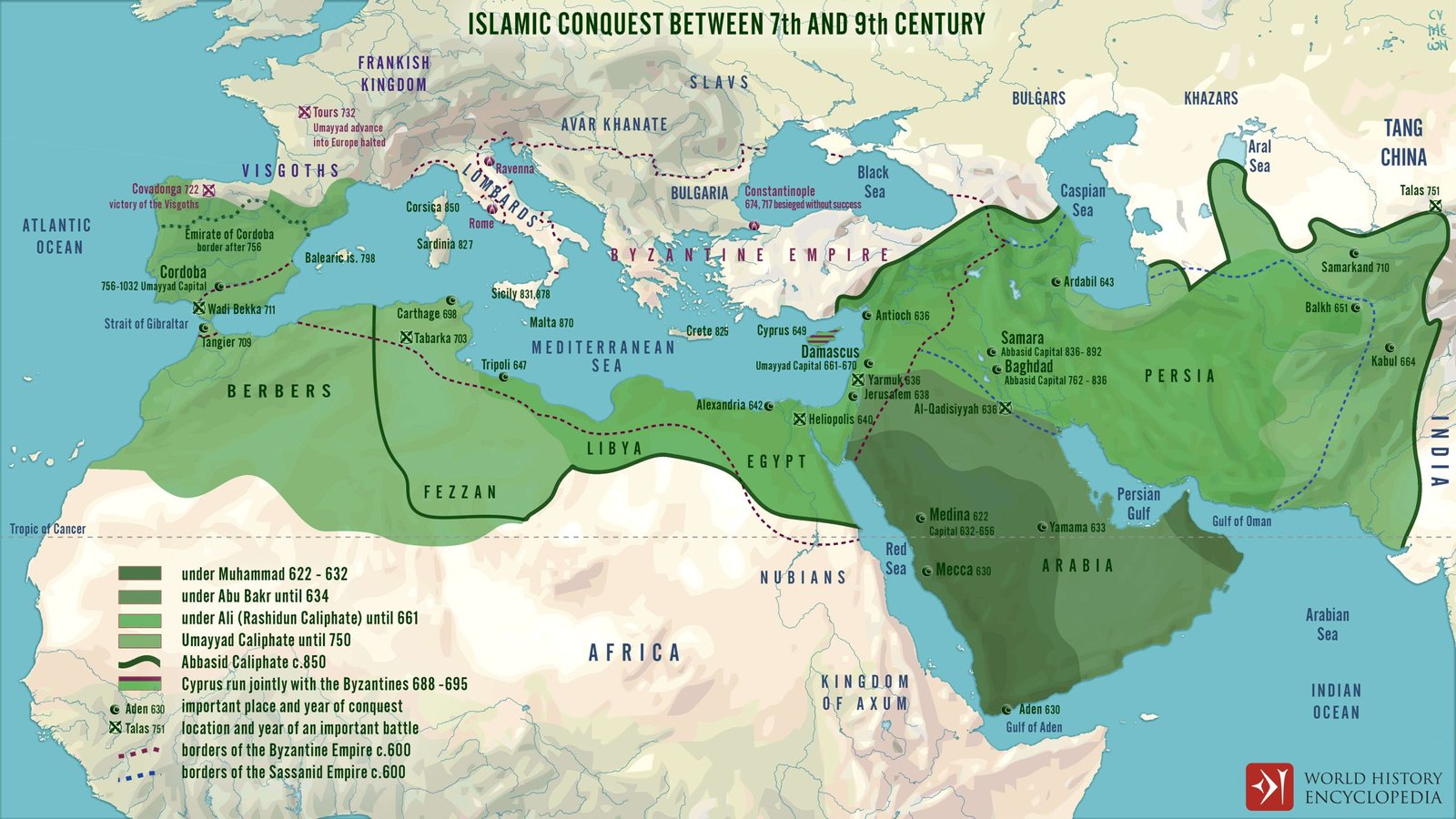
Military conquests under Umar Ibn Khattab (R.A.)
During the ten years of his rule, from 634 to 644 CE, Hazrat Umar ibn Khattab changed the course of history. In the short space of ten years, the Muslims conquered an area of 2,251,030 square miles, which included the two superpowers of the time: the Byzantine Empire in the West and the Sassanid (Persian) Empire in the East.
As history goes, a devastating war between the Byzantines and Sassanids between 603 and 628 CE left the imperial powers weak and unable to hold off waves of Arab Muslims arriving at their borders. The lands of Mesopotamia and Syria were ready to fall, and all that was required was an organized assault by the Muslims. This would, however, be a new type of war. Unlike the campaigns of destruction that the two empires had waged, the Muslim calls for war were combined with the calls for justice and social harmony consistent with the message of Muhammad. When Abu Bakr sent out the first armies, he ordered his forces to secure the safety of women, children and the elderly; to leave monks in their monasteries unmolested; and even to refrain from destroying crops. These rules could not have been more different from what the Arabs engaging in these conquests were used to before Islam. But Muhammad’s movement had been revolutionary from the start. Old ideas, traditions and ways of life had to give way to a new order, and that extended to warfare.
The Muslims won a decisive victory against the Byzantines at the Battle of Yarmouk in 636 CE and defeated the Sassanids at the Battle of al-Qadisiyyah in 637 CE.
The royal standard of the Sassanids was captured at Qadisiyya and taken to Medina. Rather than keep it as a symbol of Islam’s victory over Persia, ‘Umar ordered that it be destroyed and its jewels and gold be sold to feed the poor.
Historians estimate that more than 4,050 cities were conquered under Umar, expanding the Islamic dominion to the scale of a continent. These extended from Mecca 1,036 miles to the North, 1,087 miles to the East, and 483 miles to the South, and incorporated present-day Iraq, Iran, Azerbaijan, Armenia, Georgia, Syria, Jordan, Palestine, Lebanon, Egypt, parts of Afghanistan, Turkmenistan, and Southwestern Pakistan.
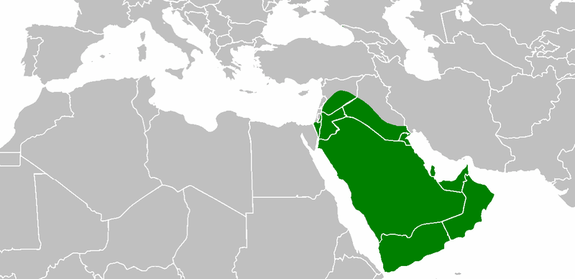
To put this in perspective, Alexander of Macedonia, celebrated as the greatest conqueror in history and titled “Alexander the Great,” conquered 1.7 million square miles during his ten years as king, while Umar Ibn Khattab expanded his empire by 2.2 million square miles in his ten-year caliphate.
Moreover, Alexander faced desertions and rebellions from his generals and soldiers, and he encountered outright refusal to advance into India. In contrast, Hazrat Umar Ibn Khattab (R.A.) was a man of such a towering personality that no companion of Umar (R.A.) dared to disobey his orders. He was such a commander that he deposed the great Islamic commander, Hazrat Khalid bin Walid, during a war, and no one dared to challenge his order. He removed Hazrat Saad ibn Abi Waqqas from the governorship of Kufa, took back the governorship from Harith bin Kaab, confiscated the possessions of Amr bin al-Aas, recalled the governor of Hems and put him on grazing camels, but none could challenge his orders.
The military conquests, which were a prelude to things to come, not only brought military success but also contributed to the empire’s wealth, which would in time be used to fund monumental projects like the Al-Aqsa mosque in Jerusalem, whose foundations were laid down by Hazrat Umar ibn Khattab (R.A.).
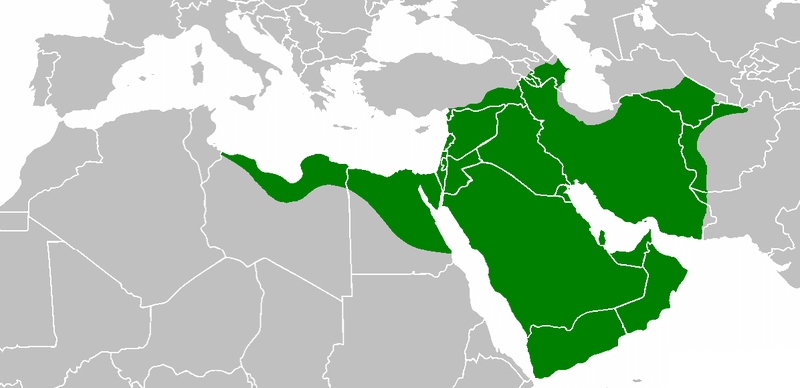
Administration & Governance under Umar ibn Khattab (R.A.)
There have been many conquerors throughout history, but Hazrat Umar ibn Khattab’s conquests stand out. For one, the conquests of Hazrat Umar Ibn Khattab (R.A.) surpass those of other conquerors, but more importantly, because of his remarkable administration and management of the lands that he conquered. Whereas the conquests of others faded quickly, Hazrat Umar ibn Khattab (R.A.) managed and administered the lands he conquered, and the governance systems set up by him in the name of Islam have endured for over 1,400 years.
The expanding empire brought about the need for a robust political structure, and Umar (R.A.) took significant steps to ensure the cohesion and efficient administration of the vast territories under his rule. He introduced comprehensive administrative reforms, closely monitored public policies, established advanced administrative bodies, ministries, and bureaucracies, and conducted a census of all Muslim territories. He also introduced concepts like jails, formed a police department, laid the groundwork for a comprehensive judicial system, initiated the postal system, organized military cantonments, and structured military administration effectively.
There were two main changes in the lives of the conquered people. The first was who they paid their taxes to. Whereas previously they had paid taxes (oftentimes oppressively high taxes used to fund the ongoing wars) to the governments in Constantinople and Ctesiphon. Now, they paid a tribute, in accordance with Islamic law, that was forwarded to Medina. In most cases, this tribute did not exceed the previous taxes, and oftentimes was much less. For an everyday citizen, lower taxes are usually good news, regardless of who collects it.
The second major change was the religious tolerance given to certain groups. Monophysite Christians, who differed from the ruling Greek Orthodox on matters of the nature of Christ, were allowed to practice their religion in Syria, a welcome change from the oppressive nature of the Byzantine government. Jews were similarly relieved of official oppression and were allowed to go back to their holiest city, Jerusalem, to worship. In the former Sassanid lands, Nestorian Christians saw increased religious freedom, as the ruling Zoroastrians had routinely restricted their freedoms on suspicions of being secretly allied with the Christian Byzantine Empire.
In economic terms, the empire saw an economic boom. The military conquests brought unimaginable wealth to the relatively simple Arabs. Thousands of silver and gold coins and valuable gems flowed from conquered lands into Medina. As per the precepts of Islamic law, the spoils were considered to belong to the entire Muslim community and were divided among members of the Ummah, from the earliest converts to Islam to the newest non-Arabs. A huge boom in economic activity ensued in Mecca and Medina, with new houses being built regularly and huge estates being established to provide continued economic growth after the conquests ended. For the first time in Islamic history, immense wealth came into the hands of a Muslim government.
This enabled Hazrat Umar (R.A.) to establish the first welfare state and introduce a permanent state treasury known as Bayt al-Maal. It marked the first instance in history of a state taking responsibility for the needy, providing fixed stipends for various groups, including infants, milk-feeding children, widows, the differently-abled, and the destitute. The Bayt al-Maal continued to operate for centuries, from the Rashidun Caliphate through the Umayyad and Abbasid periods, and its principles still exist in some form in the most developed nations of the world.
Justice is the most fundamental characteristic of Islam, and Hazrat Umar Ibn Khattab (R.A.) embodied that characteristic fully. Owing to his just nature, he earned the title of Farooq (one who distinguishes between right and wrong), and Adal-e-Farooqui (justice of Farooq), became a proverb in the world. He used to say, “Forgiving the oppressor is an injustice to the oppressed.” His saying, “mothers give birth to children free, since when did you make them slaves?” holds the status of the human rights charter today. He was the first caliph of the Islamic world to whom the title of “Amir al-Mu’minin” (Commander of the Faithful) was given.
Umar not only introduced judges and juries for local cases but also established special courts to hold officials accountable for misuse of power. He mandated asset declarations for rulers and government officials, punished unjust judges, and initiated accountability measures for rulers’ actions. He would gather the governors during the Hajj season to review their performance, listen to complaints, and ensure the well-being of the people in their provinces.
Whenever Hazrat Umar ibn Khattab (R.A.) appointed someone to an official position, he would estimate the value of their assets and keep a record with him. If, during their tenure, their wealth increased, he would hold them accountable for it. When he appointed someone as governor, he would advise them not to climb on a Turkish horse, not to wear fine clothes, not to eat sifted flour, and not to shut the door on the needy.
It has been reported that Hazrat Umar Farooq (R.A.) once said to the people around him, “Would you say that my duty would be fulfilled if I appointed over you the best from amongst you and ordered him to be just?” They said, “Yes.” He replied, “No. Not until I had checked his performance and seen whether or not he did what I had ordered him to do.”
Dawud ibn Ali reported that Hazrat Umar ibn al-Khattab (R.A.) said, “If a lost sheep under my care were to die on the banks of the Euphrates, I would expect Allah the Exalted to question me about it on the Day of Resurrection.” This statement underscores his sense of justice and the accountability he associated with his caliphate.
During his reign, Hazrat Umar ibn Khattab (R.A.) introduced significant practices in Islam. He added the phrase “As-salatu khairum-minan-nawm” (Prayer is better than sleep) to the Fajr Salah (prayer). He also established the regular practice of Taraweeh prayers and initiated salaries for the muezzins (callers to prayer). Furthermore, he installed lamps in mosques for lighting, imposed penalties for alcohol consumption, and implemented the Islamic calendar.
Despite ruling over nearly half the world at the time, Hazrat Umar Farooq (R.A.) was never fond of extravagance. He never had more than a single dish on his dining table. He would sleep with a brick under his head; his shirt had fourteen patches, and one of those was of red leather. He would wear thick and rough clothes and disliked clothes that were loose and fine. At the time of his martyrdom, Hazrat Umar (R.A.) was in debt, and so according to his will, his only house was sold and the debt was paid off.
It is also known that Hazrat Umar Ibn Khattab (R.A.) used to guard trade caravans at night and would say, “The ruler of the nation is the servant of the nation.” His seal had the inscription, “Death is the most sufficient advice.”
Conclusion
Through the ten years of his caliphate, Hazrat Umar (R.A.) took the young Muslim state from a desert-based raiding society to a regional power. The rapid expansion coupled with social stability is proof of his incredible capabilities as an administrator and leader, and he has thus gone down as one of the most successful rulers in Islamic history.
While most historical commanders have become restricted to history books only, Umar has left a mark that endures even today. While the military successes of Hazrat Umar’s reign tend to remain the focal point of most histories written about him, it is his administrative capabilities that stand out. The systems he established became the foundation for managing Islamic Caliphates. Every time a letter is sent from a post office, a police officer fulfils their duty, a soldier takes leave, or the state supports vulnerable individuals, they are merely acknowledging Hazrat Umar ibn Khattab’s greatness.
Unfortunately, the most tremendous disservice to the legacy of Hazrat Umar (R.A.) is done by the Muslims of the contemporary world, who are consumed by their feeling of inferiority to the West and who look over their shoulders before even reciting their faith.
This sentiment is captured in a historical anecdote from pre-partition India. The Muslims of Lahore in pre-partition India threatened their British colonizers, “If we come out of homes, you shall be reminded of Genghis Khan,” upon which Nehru smiled and remarked, “Alas, the Muslims who threaten with Genghis Khan today forget there was one [Hazrat] Umar (R.A.) in their history.”
Today, we too are guilty of forgetting that there was one Umar ibn Khattab (R.A.) in our history, about whom the Messenger of Allah, Muhammad (Peace Be Upon Him), remarked, “If there was a prophet after me, it would have been Umar ibn Khattab.”







